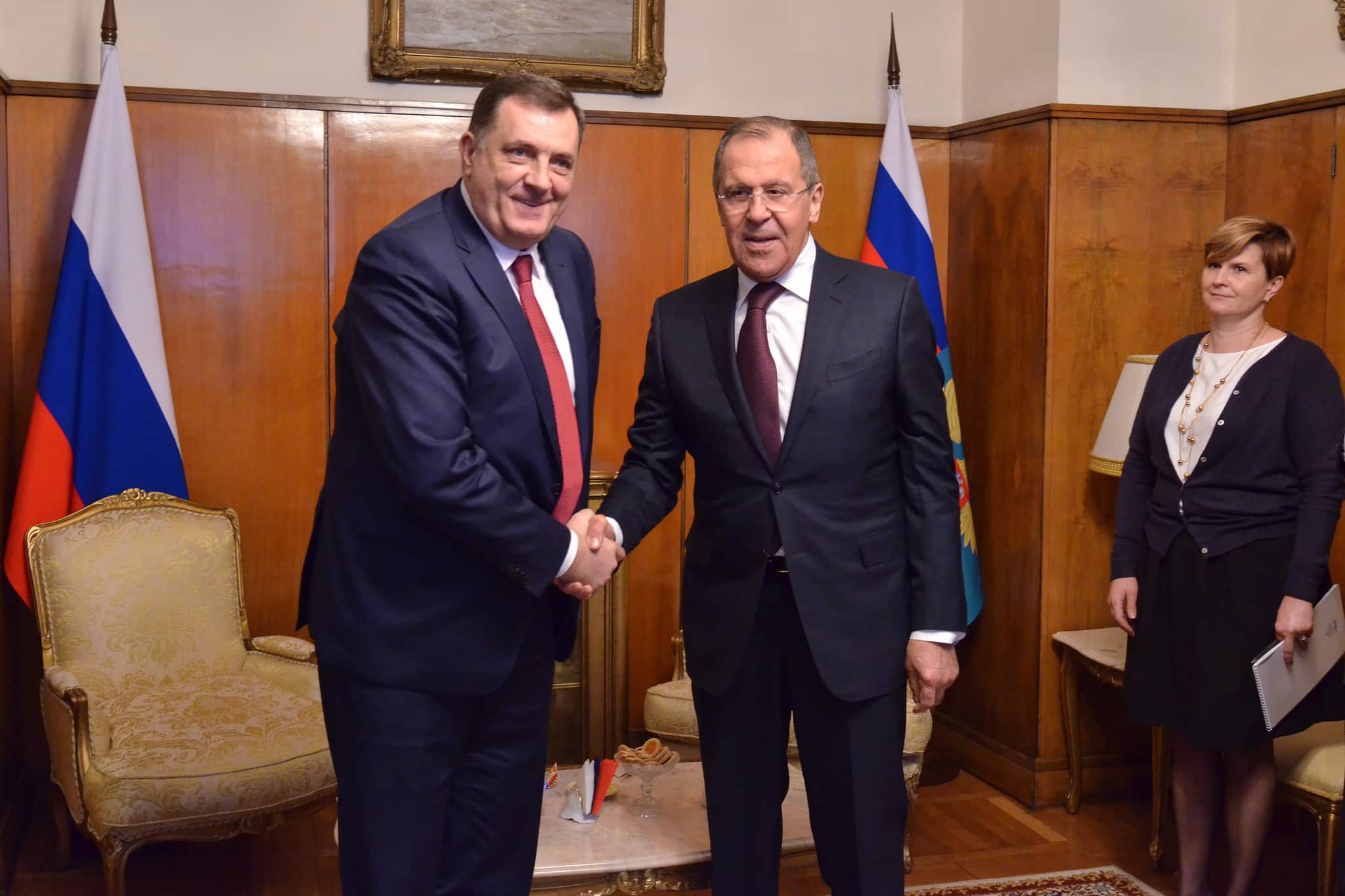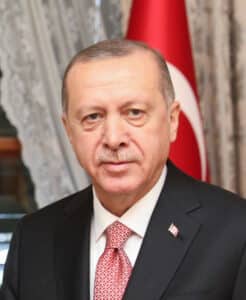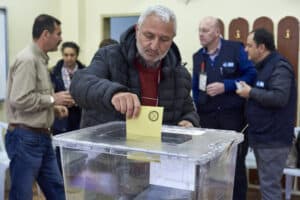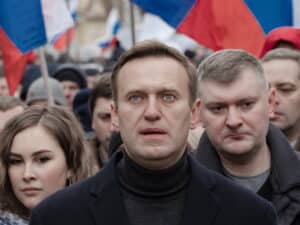On Sunday 7 October, elections will be held in Bosnia-Herzegovina which, according to civil society organisations are already marked by a widespread identity fraud. 250.000 registered voters are not in possession of an identity card which leads to suspicion of fraud. The OSCE declared that they are aware of the allegations and that they support country’s Central Election Commission to held fair and transparent elections.
In the election the rotating presidents will be chosen, the House of Representatives and the Presidents of the two entities: mainly Serb Republika Srpska and the mainly Bosniac-Croat BiH Federation. Under the current constitution, established in the 1995 Dayton Peace Agreement that ended the war, the decision making process follows ethnic lines. This causes a complex system of national and entity-level decision making, making it very hard to find consensus needed to work on further EU integration. Such a system benefits nationalist parties that have been in power since 1995.
Campaign and expectations
Although there is a lack of recent quality polling, a general trend – based on local elections – is that ruling nationalist parties will lose support. These parties, however, have a strong base which will make it impossible to govern without them. Multi-ethnic opposition citizens’ parties, such as Social Democratic Party (SDP), Democratic Front (DF) and Citizens’ Union, are expected to gain support in the BiH Federation. The turnout at the elections are low as citizens are often disillusioned and do not believe voting for any option will change thinks. Compared to 2014 general elections nationalist parties are campaigning on ethnic division, protecting the interests of their groups, while the citizens’ parties want to get rid of the government and offer alternatives on socio-economic issues. A clear difference with the 2014 poll is the concern of fair elections and the discussion on influence of foreign actors.
Russia in Western Balkans
In the last decade Russia searched for ways to reassert their presence in the Western Balkans, to present themselves as an alternative to NATO and the EU, or at least, frustrate the Western influence in the region.
Russian influence is orientated towards Serbia and Serbs in BiHby using the historical and cultural ties through the Orthodox Church. Furthermore, they use the image of NATO bombing of Serbia to keep the memory alive and discourage the will to become NATO member. To prevent the countries to join the EU and NATO, Russia also invest in their economies, but this investment has shrunk due to sanctions against Russia. BiH is dependent on Russia for their energy supply.
The anti-Western institutions campaign seems to work for one part of the citizens in BiH; the Serbs. Research from the International Republican Institute (IRI), shows that Serbs in BiH are very positive about Russian influence in their country, respectively 77%, while that number is below the 30% for Bosniaks and Croats. When asked if they support accession to NATO, 74% of the Bosnian Serbs state to be strongly against while only 6% of the Bosniaks and 9% of the Croats are against NATO membership.
Image: support for NATO
According to the Serb President of the rotating Bosnian Presidency, Mladen Ivanic, Russia and Bosnia have a good relationship, but their bond is not appreciated enough by Bosnia. That is true for Bosniaks and Croats, but not for the Serbs, they are positive about Russia and they were excited of the visit of Russian minister of foreign affairs, Sergej Lavrov.
In the run up to the elections, Lavrov visited Sarajevo and Banja Luka which is in Republika Srpska, Serb-dominated entity. According to Foreign Minister Igor Crnadak, Russia and the Bosnian Serbs have strong ties and this visit is from great value for Bosnia. Crnadak consider the visit as a confirmation of their friendship and he is sure Russia will not try to interfere in the elections. The concern is that Russia not only support Bosnian Serbs, but specifically support separatists, such as the President of Srpska, Milorad Dodik and Dragan Čović, leader of the Croatian Democratic Union who both openly support ethnic fragmentation of the country.
Interest of Turkey
Last decade Turkey searched for ways to broaden their influence in Western Balkans which led to concerns in Europe. President Emmanuel Macron openly expressed his concern about the growing influence of Turkey, however, Turkey interest is not surprising. Turkey considers the Balkans as a logical and natural influence sphere, since different parts belonged to the Ottoman Empire until 1908, moreover, the Bosniac President and leader of the main ruling Party of Democratic Action (SDA), Bakir Izetbegovic, is a close friend of President Tayyip Erdogan and ties between the two countries are getting stronger. For instance, Erdoğan was welcomed in BiH to hold a political campaign rally in May, after he was denied access in the Netherlands, Germany and Austria.
The most important link between the two countries is religion and Turkey is providing funds to rebuild old mosques and build new schools. Investments in the region will be slowed down due to economic crisis in Turkey since the collapsing of their currency, the lira. A recent survey suggest that Bosniaks consider the influence from Turkey positive, namely 76% while the Serb are less positive; 30% and Croats 39%.
EU
Concern in the West about the growing influence of Russia and Turkey in the region is combined with division and lack of strategy from the EU. The Union announced last May that the six countries of the Western Balkan have a clear European perspective but should not expect membership any time soon. President Macron made clear that the EU has to solve her own problems first. Therefore in aspirant countries focus should be on reforms, development and regional integration.
Despite the fear of the EU that the Western Balkan will form close relations with authoritarian states, the EU is not rushing in the integration process. The Union has her own challenges, such as Brexit and migration, but it also tries to offer a clear European perspective for Western Balkans on the long term. A majority of citizens of Bosnia-Herzegovina ‘somewhat’ or ‘strongly’ supports EU membership: 88% of the Bosniaks, 76% of Croats and 57% of Serbs.
Image: Support for EU membership
While a recent poll by the National Democratic Institute (NDI) suggests that main concerns for citizens are unemployment, political situation, corruption and outflow of the population, ethnic based political parties that have been in power since 1995 are still managing to secure a majority of the votes based on their ethnic profile.
Sources: Balkan insight, Balkan insight II, Bosnia and Herzegovina: Understanding Perceptions of Violent Extremism and Foreign Influence, Center for the Study of Democracy, CSCE, FDI, N1, The Times, The Guardian,
Photo: Flickr



